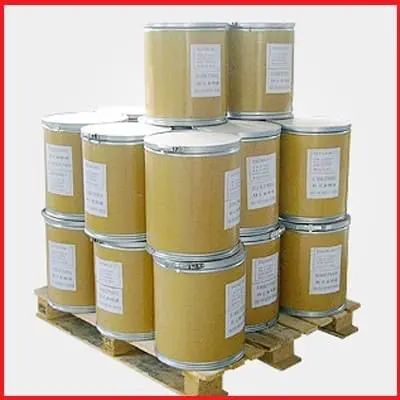Coenzyme Q10 (CoQ10) has gained significant attention in the health and wellness industry due to its potential benefits for heart health, energy production, and antioxidant properties. As the demand for CoQ10 supplements continues to grow, manufacturers are faced with a crucial decision: choosing between water-soluble and oil-soluble forms of CoQ10 powder. In this comprehensive guide, we'll explore the differences between these two forms, their advantages, and how to select the right option for your specific application.

What is the difference between water-soluble and oil-soluble CoQ10 powder?
The primary distinction between water-soluble and oil-soluble CoQ10 powder lies in their solubility properties, which significantly impact their absorption and bioavailability in the human body.
Oil-soluble CoQ10 powder:
- Natural form of CoQ10
- Soluble in fats and oils
- Requires lipid-based carriers for optimal absorption
- Often used in softgel capsules and oil-based formulations
Water-soluble CoQ10 powder:
- Modified form of CoQ10 to enhance water solubility
- Dissolves readily in aqueous solutions
- Typically achieved through various technologies such as nanotechnology or emulsification
- Suitable for use in beverages, powdered supplements, and water-based formulations
The solubility characteristics of these two forms play a crucial role in their absorption and bioavailability. Oil-soluble CoQ10 is lipophilic, meaning it dissolves in fats and oils. This property allows it to be easily incorporated into the body's fat-containing tissues and cell membranes. However, its absorption can be limited by the presence of dietary fats and the efficiency of the digestive system in breaking down and absorbing lipids.
On the other hand, water-soluble CoQ10 powder has been engineered to overcome the solubility limitations of its oil-soluble counterpart. By increasing its water solubility, this form of CoQ10 can be more easily dispersed in aqueous environments, potentially leading to improved absorption in the gastrointestinal tract. This enhanced solubility may result in higher bioavailability, especially in individuals with compromised fat absorption or those taking CoQ10 on an empty stomach.

Bulk CoQ10 powder: advantages of oil-soluble vs water-soluble forms
Both oil-soluble and water-soluble forms of CoQ10 powder offer unique advantages, and the choice between them depends on various factors, including the intended application, target audience, and desired product characteristics.
Advantages of oil-soluble CoQ10 powder:
- Natural form: Oil-soluble CoQ10 is the form naturally produced by the body, which may be preferred by consumers seeking a more "natural" supplement.
- Stability: Generally more stable than water-soluble forms, especially in terms of long-term storage and shelf life.
- Versatility in fat-based formulations: Ideal for incorporation into softgel capsules, oils, and fat-based creams or lotions.
- Synergy with fat-soluble nutrients: Can be easily combined with other fat-soluble vitamins and nutrients for comprehensive formulations.
- Established track record: Has been used in supplements for decades, with a wealth of research supporting its efficacy and safety.
Advantages of water-soluble CoQ10 powder:
- Enhanced absorption: May offer improved bioavailability, especially in individuals with compromised fat absorption.
- Versatility in aqueous formulations: Can be easily incorporated into beverages, powdered supplements, and water-based cosmetic products.
- Rapid dissolution: Dissolves quickly in water, which can be beneficial for fast-acting formulations.
- Potential for higher dosages: The improved solubility may allow for higher concentrations of CoQ10 in a single dose.
- Appealing to consumers: May be perceived as more "advanced" or "innovative" by consumers, potentially driving product differentiation in the market.
When considering the advantages of each form, it's important to note that the effectiveness of CoQ10 supplementation ultimately depends on its ability to reach target tissues and cells. While water-soluble forms may offer improved initial absorption, the body's ability to utilize and distribute CoQ10 to various tissues may still rely on lipid-based transport mechanisms.
Furthermore, the choice between oil-soluble and water-soluble CoQ10 powder should take into account the specific needs of the target consumer base. For example, individuals with digestive issues or those taking medications that interfere with fat absorption may benefit more from water-soluble formulations. Conversely, consumers looking for a more traditional or natural approach might prefer oil-soluble CoQ10.
How to choose bulk CoQ10 powder form for dietary supplement vs cosmetic use?
Selecting the appropriate form of CoQ10 powder for your product depends on various factors, including the intended application, target market, and desired product characteristics. Let's explore the considerations for both dietary supplements and cosmetic use:
Dietary Supplements:
- Bioavailability: Consider the target consumer's ability to absorb and utilize CoQ10. Water-soluble forms may be beneficial for those with compromised fat absorption.
- Formulation type: Oil-soluble CoQ10 is ideal for softgel capsules and oil-based liquids, while water-soluble forms are suitable for powdered supplements, beverages, and chewable tablets.
- Stability: Evaluate the stability of the CoQ10 form in the intended formulation and packaging to ensure a viable shelf life.
- Dosage: Water-soluble forms may allow for higher concentrations in a single dose, which could be advantageous for certain applications.
- Target audience: Consider the preferences and needs of your target consumers. Some may prefer "natural" oil-soluble forms, while others may be attracted to "innovative" water-soluble options.
- Regulatory compliance: Ensure that the chosen form of CoQ10 meets regulatory requirements for dietary supplements in your target markets.
Cosmetic Use:
- Skin penetration: Water-soluble CoQ10 may offer better skin penetration in topical applications, potentially enhancing its antioxidant effects in the skin.
- Formulation compatibility: Choose a form that is compatible with your cosmetic base. Water-soluble CoQ10 is ideal for water-based serums and lotions, while oil-soluble forms work well in oil-based creams and balms.
- Stability in formulation: Consider the stability of CoQ10 in the presence of other cosmetic ingredients and exposure to light and air.
- Texture and sensory properties: Evaluate how the chosen form of CoQ10 affects the texture, feel, and overall sensory experience of the cosmetic product.
- Marketing claims: Align the choice of CoQ10 form with your product's marketing claims and positioning in the market.
- Regulatory compliance: Ensure that the selected form of CoQ10 meets regulatory requirements for cosmetic use in your target markets.
When selecting CoQ10 powder for your products, it's crucial to work closely with a reputable supplier who can provide high-quality, well-characterized CoQ10 ingredients. Look for suppliers who offer both oil-soluble and water-soluble options, allowing you to choose the most appropriate form for your specific application.
Additionally, consider conducting stability testing and pilot studies to evaluate the performance of different CoQ10 forms in your formulations. This can help you make an informed decision based on real-world data and ensure that your final product meets your quality and efficacy standards.
Ultimately, the choice between water-soluble and oil-soluble CoQ10 powder should be based on a careful evaluation of your product goals, target market, and formulation requirements. By considering these factors and working with experienced suppliers and formulators, you can develop innovative and effective CoQ10-containing products that stand out in the competitive health and wellness market.
Conclusion
The choice between water-soluble and oil-soluble CoQ10 powder from a CoQ10 powder factory is a critical decision that can significantly impact the success of your dietary supplement or cosmetic product. By understanding the unique properties, advantages, and applications of each form, you can make an informed choice that aligns with your product goals and target market needs.
Whether you opt for the traditional oil-soluble form or the innovative water-soluble option, the key is to prioritize quality, stability, and efficacy in your formulations. As the demand for CoQ10-containing products continues to grow, manufacturers who can effectively leverage the strengths of their chosen CoQ10 form will be well-positioned to succeed in this dynamic market.
FAQ
1. What is the recommended dosage for CoQ10 supplements?
The appropriate dosage of CoQ10 can vary depending on individual needs and health conditions. Generally, doses range from 30 to 200 mg per day for adults. However, it's essential to consult with a healthcare professional before starting any new supplement regimen.
2. Can CoQ10 interact with medications?
Yes, CoQ10 can interact with certain medications, particularly blood thinners and some cholesterol-lowering drugs. It's crucial to inform your healthcare provider about all supplements you're taking to avoid potential interactions.
3. Is CoQ10 suitable for vegetarians and vegans?
While CoQ10 is naturally found in meat and fish, there are vegetarian and vegan-friendly CoQ10 supplements available. These are typically made through fermentation processes using yeast or bacteria.
4. How long does it take to see the effects of CoQ10 supplementation?
The time frame for experiencing the benefits of CoQ10 supplementation can vary. Some individuals may notice improvements in energy levels within a few weeks, while others may take several months to see significant changes. Consistent supplementation and a healthy lifestyle are key to maximizing the potential benefits.
Bulk CoQ10 Powder Suppliers: Your Trusted Source for Premium Ingredients | JIANBEI
Looking for high-quality bulk CoQ10 powder for your dietary supplements or cosmetic products? Look no further than Guangzhou Jianbei Biotechnology Co., Ltd. As a leading manufacturer and supplier of premium CoQ10 powder, we offer both water-soluble and oil-soluble forms to meet your specific formulation needs. Our state-of-the-art production facilities and rigorous quality control measures ensure that you receive the highest quality ingredients for your products.
Whether you're developing innovative supplements, functional foods, or cutting-edge skincare products, our team of experts is here to support you every step of the way. We understand the unique challenges of working with CoQ10 and can provide tailored solutions to help you create successful, market-leading products.
Don't compromise on quality when it comes to your CoQ10 formulations. Partner with Jianbei for reliable, consistent, and high-performance CoQ10 powder that will set your products apart in the competitive health and wellness market. Contact us today at h33727868@gmail.com to discuss your bulk CoQ10 powder needs and discover how we can help you achieve your product development goals.
References
1. Bhagavan, H. N., & Chopra, R. K. (2006). Coenzyme Q10: Absorption, tissue uptake, metabolism and pharmacokinetics. Free Radical Research, 40(5), 445-453.
2. Hosoe, K., Kitano, M., Kishida, H., Kubo, H., Fujii, K., & Kitahara, M. (2007). Study on safety and bioavailability of ubiquinol (Kaneka QH) after single and 4-week multiple oral administration to healthy volunteers. Regulatory Toxicology and Pharmacology, 47(1), 19-28.
3. Littarru, G. P., & Tiano, L. (2007). Bioenergetic and antioxidant properties of coenzyme Q10: recent developments. Molecular Biotechnology, 37(1), 31-37.
4. Zmitek, J., Smidovnik, A., Fir, M., Prosek, M., Zmitek, K., Walczak, J., & Pravst, I. (2008). Relative bioavailability of two forms of a novel water-soluble coenzyme Q10. Annals of Nutrition and Metabolism, 52(4), 281-287.










